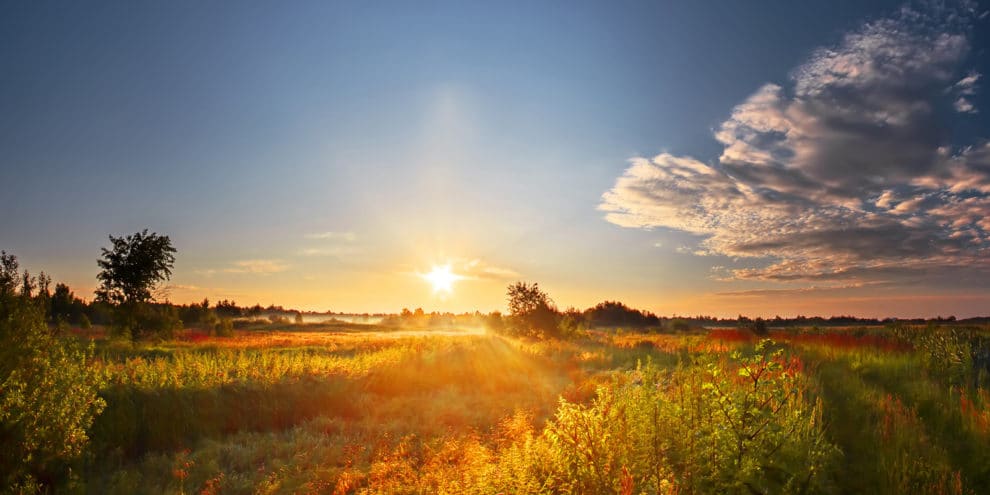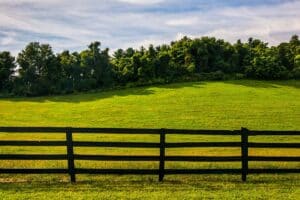If you’re looking to purchase rural land for sale, there are many options throughout all parts of the United States. Many people want to buy land to build a home. Some urban dwellers may be looking for a safe place to retreat, while other people want land for farming or hunting and recreational use. It can be hard to find good land at a good price that also checks all the boxes, but it’s not impossible if you know where to look.
In many places, land for sale may be plentiful but not necessarily cheap. Texas, for instance, has some of the best land in the U.S., but its prices have risen over the years. In Texas, you can find land that spans just a few acres, as well as land that stretches for a couple of square miles (Waggoner Ranch anyone?). Population may be a key factor for some land buyers, and populations throughout Texas can range anywhere from a couple hundred people to a few million in the larger cities.
There are lots of options when it comes to land for sale in the Lone Star State and elsewhere. Here we’ll consider some of the more important aspects of finding land, including where to start and what to look for.
Find a Local Agent
The United States is a beautiful country with many regions and diverse geographical features, including forests, mountains, lakes, deserts, canyons, plains, and coastal areas. Each has its own unique circumstances that are independent of how one might go about buying property in that area, including different issues that may arise in the transaction process.
Once you have a good idea of where you want to look for land and what your requirements are, you should reserve the services of a local agent who specializes in land. Much like politics – real estate is local. It’s acceptable to use broad resources such as the internet to begin your search, but once you get serious, you need to find an agent that knows the area and the land you are most interested in purchasing.
Location & Utilities
Location is always important to consider when buying land, but in relation to that, so are utilities. Most people think that getting utilities such as electricity, water and sewer to their property is a given, though this is often not the case when purchasing rural land. You may need to speak with a neighbor about getting an easement across their property for your electricity. As for water, different counties will have different requirements for well and septic, including where those necessities may have to be placed in relevance to other wells and structures. Be sure to consult with your local land agent for guidance.
Easements
With the mention of utility easements, I must bring up another important issue that many landowners face, which is the existence of easements currently on their property. Easements are varied in how they operate on the land. I’ll again use Texas as an example, which is a major energy producing state. As such, there are pipelines and high voltage transmission lines criss crossing much of the state. Pipelines are not all bad and can produce incremental income for the landowner, but at the same time they can restrict what you may be able to do on certain parts of your land. More importantly, in the state of Texas, major pipelines that transfer energy resources also have the right to claim eminent domain and when this happens, things may get contentious.
It is often said that once they lay one pipeline, they will lay another. When searching for land, be sure your agent does his research and notifies you of any easements currently on the property and what impact they may have.
Mineral Rights
As with easements, another potential issue that can arise in a land transaction is one involving mineral rights. For example, for a mountain property, landowners can reserve the mineral rights on property that they decide to sell. When this happens, the buyer may own the newly purchased land, but the previous owner still owns the subsurface or liquid minerals and the rights to negotiate the exploration of the land in order to access and produce those subsurface minerals. This practice is now starting to extend into reservation of wind and commercial water usage on properties as well.
The negotiations into such matters can get complicated and at times strange, where certain subsurface depths and locations that are under current production may be reserved, while other areas of the subsurface end up conveying with the transaction. It can be very helpful to have a land agent that understands these things and is able to guide you through these situations.
Size & Terrain
Depending on your intended use, size and terrain are important things to consider when buying land. You may find a great piece of land in an area that doesn’t have a lot of trees, but that doesn’t mean trees can never be grown there. Maybe you’re considering buying a piece of land for a vineyard or orchard. Maybe you’re interested in having pasture land for livestock or food plots for wild game. Whether you’ll be growing wine grapes, peaches, grass or soybeans, you should first determine whether the size of the land is right for its use, and then consider the ways you may need to improve the terrain and ensure the soil will be rich with the right nutrients.
The Right Price
When it comes to making sure you pay the right price for a piece of land, an experienced and knowledgeable local land agent is your friend. I cannot stress this enough, as there is a huge difference between selling a million-dollar home in New York City and selling a million-dollar ranch in West Texas. Finding comparable properties is not always readily available, which makes it difficult to determine how much money land is selling for in a particular area. In these circumstances, a well-informed agent will be able to provide you with their professional opinion, as they will be up-to-date on the recent prices people have paid for properties, both on and off market, that are similar to the one that you are interested in.
Finding land for sale that is going to fit your needs and preferences will be easiest if you do your research and use an agent who knows where to look and what to look for. You may not find the perfect property that checks all your boxes, but keeping an open mind will help you find a great piece of land that checks most. And while it can be difficult to determine whether a piece of land is worth the price you are willing to pay, it will always be worth the effort it serves your needs and brings you joy.
Written by Case Horton, Realtor & Director of Marketing for Preferred Properties of Texas
This content may not be used or reproduced in any manner whatsoever, in part or in whole, without written permission of LANDTHINK. Use of this content without permission is a violation of federal copyright law. The articles, posts, comments, opinions and information provided by LANDTHINK are for informational and research purposes only and DOES NOT substitute or coincide with the advice of an attorney, accountant, real estate broker or any other licensed real estate professional. LANDTHINK strongly advises visitors and readers to seek their own professional guidance and advice related to buying, investing in or selling real estate.










Add Comment